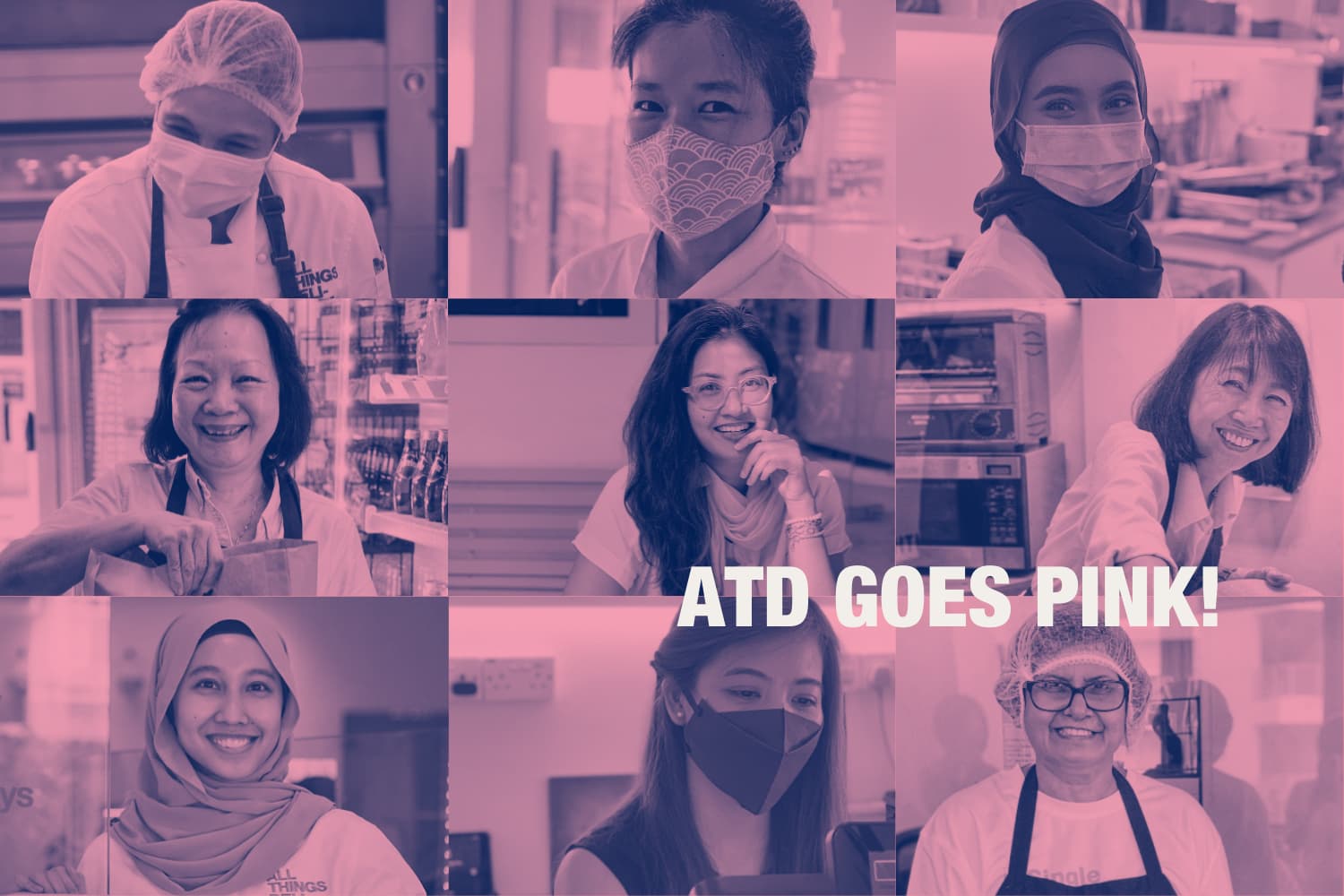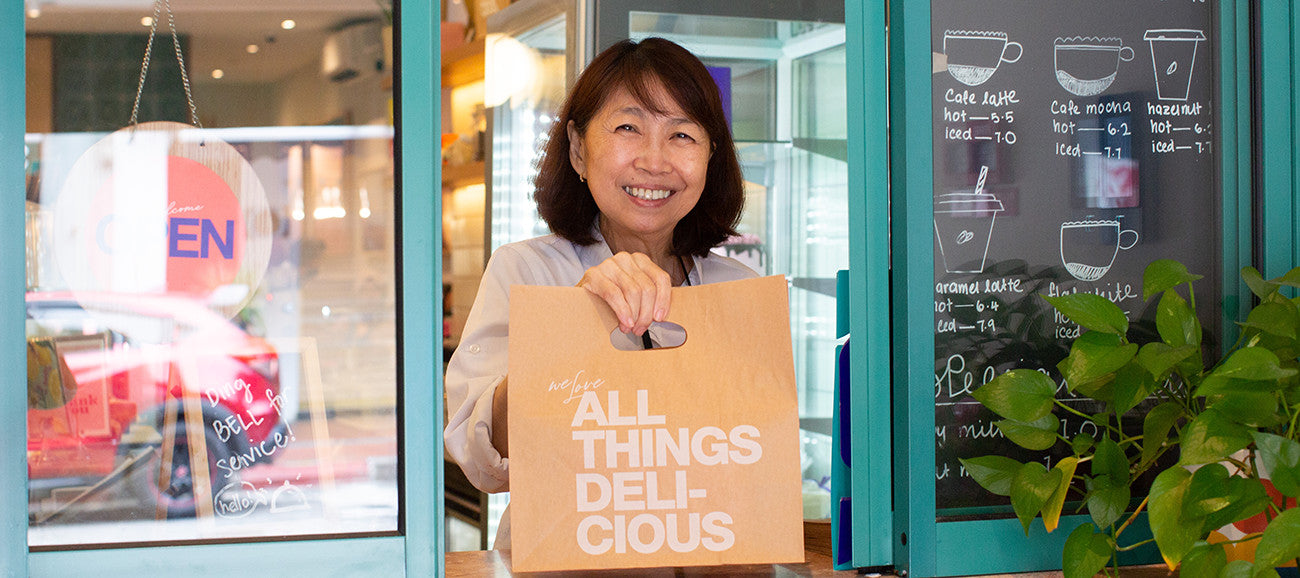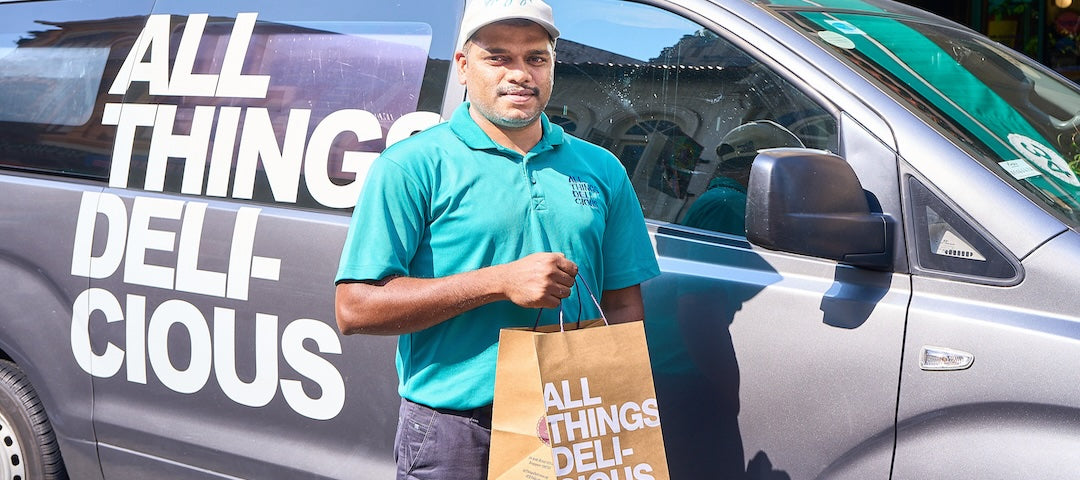ATD Goes Pink! Join us as we commemorate Breast Cancer Awareness Month this October. As a female-owned business, and with females making up 80% of the All Things Delicious team, we want to ensure that our colleagues are aware of the information available and also to remind all the ladies out there that early detection is the best protection. The most important answer to this question is crystal clear: early detection helps save lives.
So we thought we’d share this list with EVERYONE on the 5 factors that increase your risk of getting breast cancer! So please listen up!

1. Women and men over the age of 55
As we grow older, abnormal changes in our cells are more likely to occur. That’s because the longer we live, the more opportunities there are for genetic damage (mutations) in the body. Thus, our bodies are less capable to repair the damage.1 This is a tough one, people, but ageing is something none of us can avoid. As the human race progresses and life expectancy steadily2 rises in Singapore, so do our risks of cancer. As we grow older, it is best to listen to our bodies and look out for any abnormal changes to our bodies and take immediate action.

2.Those with a family history of breast cancer
While most women who get breast cancer do not have a family history of the disease, it is important to note that those that do have a family history of it have a higher risk. Having close blood relatives (sister, mother, daughter) with breast cancer doubles your risk. Having two close relatives with breast cancer increases your chances by 3-fold. A strong family history of breast cancer is linked to having an abnormal gene associated with a high risk of breast cancer, such as BCA1 or BCA2.3 It is also unheard of for some women to go through preventive mastectomy due to the high-risk gene that they carry. Hollywood superstar Angelina Jolie, is not only famous for her movie roles, but also for having gone through a double preventive mastectomy4 a few years ago. So if there is a history of someone in your family with breast cancer, please do your monthly self-check and see a doctor the moment you discover anything abnormal. And if you are over 40 years of age, you should seriously consider booking an appointment for a clinical breast examination or a mammogram.

3. Diet
Excessive consumption of unhealthy food and alcohol may increase a woman’s risk of cancer. Alcohol can increase levels of estrogen and other hormones that are responsible for breast cancer. Compared to women who don’t drink at all, an alcohol drinker has a 15%5 higher risk of getting breast cancer. Although no food or diet can prevent us from getting breast cancer, consuming an unhealthy amount of fat and processed food can increase the chance of getting breast cancer. We are pretty sure that each one of us here has our own guilty pleasure. While it makes us happy, eating an excessive amount of unhealthy food and alcohol can put us at a higher risk of getting breast cancer. To reduce the chances of getting it, start by exercising regularly. You can start simply. For example, daily walks are known to improve a person’s health tremendously!6 You can also find an exercise regime that interests you such as yoga, swimming and more! The most important thing is to START and you and I both know that YOU CAN DO IT!

4. Using Hormone Replacement Therapy (HRT)
Current or recent past users of HRT have a higher risk of being diagnosed with breast cancer. Many women use HRT to ease menopausal symptoms such as hot flashes, fatigue, and to reduce bone loss. Therefore, seek advice from your doctors on the lowest effective dose and the shortest duration of HRT. Even though the number of women in Singapore that use HRT is low7, there is still a possibility of getting breast cancer when using the treatment. If you have decided to use HRT, do consult your doctor on the lowest effective dose and the shortest duration for the treatment. And don’t be afraid to speak up about your concerns with your healthcare professional!

5. Menstrual history
Women who started menstruating younger than age 11 have a risk of getting breast cancer in later life8. When girls start menstruating at a younger age, the time between breast development and first full-time pregnancy is usually longer than when menstruation happens later. During this period, breast tissue gravitates to be more immature and especially sensitive to hormonal influences. So, if any of you here has a history of menstruating at an early age, it is advisable that you start doing self-examination on yourself. You may think it's weird, but it is safer than sorry. If you know any of your cousins, nieces or sisters that have menses before the age of 11, encourage them to exercise more as doing physical activity can reduce the risk of contracting breast cancer. Take them for a walk or even fun water activities like Hydrodash which is a family-friendly obstacle course!
Now, it is important to get an early screening if you think you are at risk9. A delay in prognosis tends to show that it is associated with more advanced stage cancers at diagnosis, resulting in life-threatening situations. As far as we are all scared and fear about the outcome, the goal of early detection is to diagnose and treat breast cancer patients in an early stage when the prognosis for long-term survival is ideal.
While we can’t completely prevent the chances of getting breast cancer, we can always make lifestyle choices that can keep the risk as low as it can! One of which is by maintaining a healthy weight, limiting alcohol and eating nutritious food.



